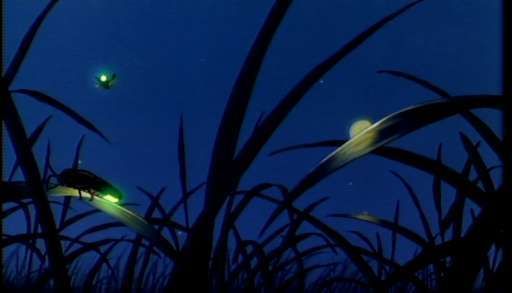 As a native Floridian, it was very exciting to move to the mid-Atlantic region of the country and see fireflies during the summer. We don't have fireflies in Florida, so I was like a kid searching the night air for those flickers of light.
As a native Floridian, it was very exciting to move to the mid-Atlantic region of the country and see fireflies during the summer. We don't have fireflies in Florida, so I was like a kid searching the night air for those flickers of light. Because I love fireflies so much, I was dismayed to read that their numbers are dwindling. The first signs of a drop in firefly populations appeared in Thailand where there has been a 70% decrease in fireflies in just three years. Scientists from around the world descended on Thailand to discuss the possible explanation for this population decrease and debate whether it serves as a warning to humans.
Researchers are constantly aware of the "canary in a cold mine" role that plants and animals play. Other species are more sensitive to changes in temperature, oxygen levels and the presence of toxins. If a species shows unusual behavior, it may be a sign to humans that changes in our environment could begin negatively affecting us as well. These species are called "indicator species."
So far, scientists have not concluded whether fireflies are indicator species or not. This is because scientists haven't isolated the cause of the population decrease. Some anecdotal evidence points to the growing presence of artificial light. Artificial lights impede the mating process for fireflies because their light cannot glow bright enough to attract a mate. Other theories focus on the growth of urban sprawl and the resulting increases in air pollution.
Fireflies are unusual insects. There are 2,000 different species of them, with many new species discovered all the time. Most of the species have never truly been studied. There are still many questions unanswered about their light and its purpose. They are very difficult to count or track and have short lifespans of about 3 weeks. Regardless, they are still members of an ecosystem and their behavior tells a story about the condition of that ecosystem.
If you want to help protect firefly populations, there are two things you can do. First, you can turn your outdoor lights off or as low as possible. Second, you can post sightings of fireflies on THIS website to help scientists track their numbers.
If you'd like to read more about the firefly population decrease, click HERE.










this is so sad!! i used to watch the trees in my back yard twinkle all night long in summer like xmas trees lit up . i live in central mass and now as i promise my kids i will find them a firefly and i watch thier anticipating smiles turn upside-down, it sickens me. what is going on!! i have not seen ONE all season long. is it just my area , or are they disappearing all over the world!!??
ReplyDeleteIm glad I found this blog because me and my father were talkng about the firefly population in Ny. There were always many of them during the summer but now your lucky to find one. Im not one of this end of the world people, but I think something is wrong if theyare dissapearing all over the world (Thailand,NY,Florida). There must be other people who feel the way we do.
ReplyDeleteThe thickest and most exciting accumulation of Fireflies I have ever seen was in Florida! I grew up with Fireflies in Texas but never saw as many as in Florida.
ReplyDeleteIn my area of PA they have disappeared too. In my backyard I estimate about an 80% reduction from 2007 to 2008. I am very sad for what the 2009 summer may look like.
ReplyDeleteWell, I'm in Northern Virginia, and the firelflies have made a modest showing every summer I've been here for the last 15 years or so. This year, their numbers in our neighborhood seem to be way up. I'm finding it vey exciting to see so many. I grew up in Orlando where fireflies were common when I was a child in the mid 60's. By the time I was in high school there they simply didn't exist.
ReplyDeletei live in central Minnesota in almost the middle of nowhere.. the nearest town is Malmo and its pop is about 60 and this year there are barely any fireflies even in this desolate of a region.. what is going wrong and why is this happening?
ReplyDelete